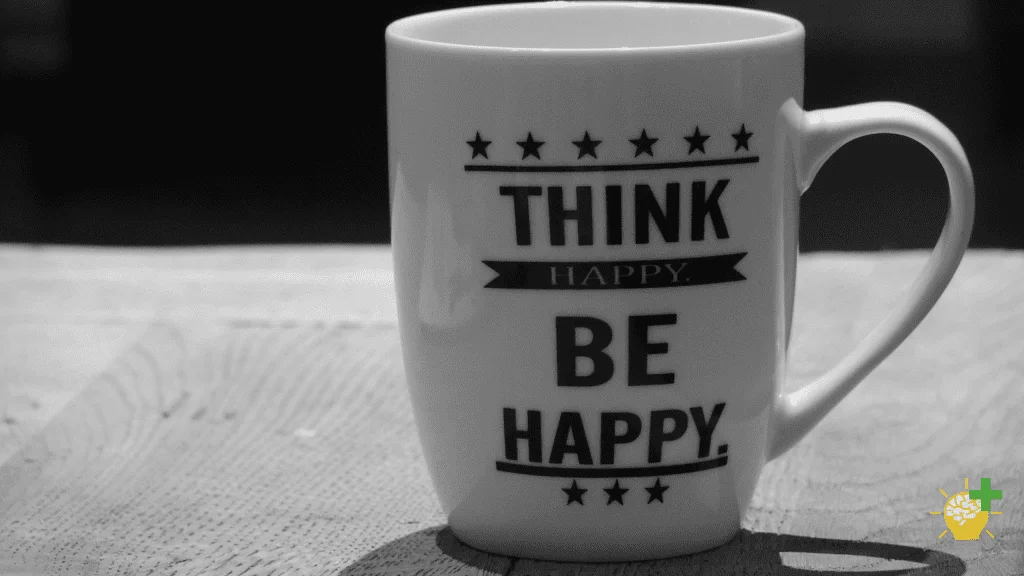Our beliefs are personal and real to us, but that does not necessarily make them true. In essence, our beliefs, especially those we hold about ourselves, are emotionally laden inner statements about ourselves, which we assume to be truths.
We form these beliefs from what authority figures drummed into us as children, as well as conclusions reached from personal observations and experience.
Our beliefs shape our lives, whether we know it or not. They influence our choices, dictating to us what we can and can’t do, regardless of whether or not we truly have the ability to do them.
Self limiting beliefs are incapacitating because they restrict you in some way. Unfortunately, many people have tons of limiting beliefs stopping them from realizing their full potential.
While everyone experiences limiting thoughts from time to time, if you find yourself struggling with self-doubt and constantly putting yourself down, it can significantly decrease your chance of living a happy life.
My goal in writing this article is to help you identify and understand your limiting beliefs and share useful tips to help you overcome them.
If you are reading this, and your beliefs are stopping you from reaching success in one or more areas of your life, you’re already on the right path because you know that you deserve a meaningful life, despite what your limiting beliefs may suggest. Keep reading to free yourself from the shackles of this poor state of mind.
What Is a Self-Limiting Belief?
Simply put, a self-limiting belief is a perception or assumption about yourself that holds you back from maximizing your abilities and capabilities. It is a state of mind that puts a ceiling on what you can do and is often a false judgment about yourself.
Self limiting beliefs go by a few names, such as:
- Disempowering beliefs
- Self-deprecation
- Negative self-talk
- The enemy within
These terms suggest that the perceptions or assumptions about yourself and how things work are generally false, even though you think they are. And because you think these beliefs are true, they often make you sabotage your own happiness and stop short of success.
Real-World Examples of Self-Limiting Beliefs
Any thought pattern preventing you from stretching yourself beyond your comfort zone is a self-limiting belief.
For example, suppose you nurse the belief that you’re not good at relationships because you are an introvert. In this case, you may find yourself subconsciously avoiding situations that could lead to meeting new people, going on dates, and starting a new relationship.
You know that you deserve to have a happy relationship, good friends, and strong connections, but the self-limiting belief prevents you from taking steps to get what you want and deserve.
Here are other common limiting beliefs people hold about themselves and the likely behaviors associated with these assumptions.
1. I Am Not Good Enough
This is one of the most deep-seated self limiting beliefs many people struggle with. And it is often disguised as genuine excuses, making it harder to identify and overcome.
Of course, it is normal to consider yourself “inadequate” to fill certain roles or do certain things if you haven’t developed the right skills or don’t have the right qualifications.
However, no one is “not good enough” for anything.
Unfortunately, some people think that just because they lack certain skills or abilities at the moment, they are unfit for other things and will never improve beyond their current level.
Telling yourself that you are not good enough conditions your mind to accept that it is okay to watch from the sidelines while others acquire new skills, work to develop themselves, and seize opportunities.
2. I Can’t Do It if I Can’t Get It Right the First Time
On the surface, perfectionism doesn’t seem like a self-limiting belief, but that’s exactly what it is. It stops you from trying just because you think you will fail, and this is called being risk-averse.
Nothing is 100% guaranteed, yet, that’s what perfectionism demands – an all-or-nothing thinking pattern.
If you find yourself thinking, “What’s the point attempting something bigger if I couldn’t get this small thing right?” that’s an all-or-nothing self-limiting belief right there!
3. I Am Not Worthy
Thought patterns that constantly put you down restrict you from taking risks, standing up for yourself, and speaking up.
But that’s not all.
Self limiting beliefs that tell you how unworthy you are can also make you act defensively. In other words, you constantly try to protect yourself from any uncomfortable feeling associated with being inadequate, so you act defensively.
If someone should point out one of your weaknesses, you’ll likely respond defensively rather than improve on the weakness. It clearly indicates that deep down, you believe you are unworthy of becoming better than you already are. And it will be too uncomfortable to stretch yourself in a bid to be any better than you already are.
4. Others Are Better Than Me
Negative comparison is unhealthy, shows a lack of self-acceptance, and breeds envy. Beyond these, though, it can stop you dead in your tracks because it shows you are emotionally invested in a false assumption about yourself – an assumption that holds you back from who you can become.
The belief prevents you from seeing that each individual is unique, and you don’t have to be like anyone to be successful, happy, or fulfilled.
Being different is good; having different natural talents, strengths, and personalities is okay. You don’t have to be exactly like someone else, and no one is more than, better than, or less than anyone – we are just different.
5. I Can’t Deal With Different Opinions
No one enjoys conflicts, yet getting everyone to agree on one thing is nearly impossible. That’s because diverse opinions are crucial for progress and success, even within teams working on the same project.
However, a belief that makes you shy away from conflicting opinions will make you give into others too easily. You’ll be unable to speak up for what you believe in or say what you really want. This self-limiting belief stems from a place of the fear of rejection.
6. I Don’t Have Enough Time, Money, or Qualification
A lack of resources, such as time and money, can stop you from accomplishing many things. But time and money are often excuses for inaction. If you have a goal and your desire is strong enough, you will find a way to make time and raise money to accomplish the goal.
History is dotted with many successful people who achieved great things despite financially constraining situations. Some didn’t even have the required educational qualification, yet they didn’t let that stop them.
On the other hand, if you only have a fleeting wish for something, your mind will come up with a ton of excuses why you shouldn’t “put yourself out there” unless you have everything necessary to accomplish the goal.
Bottom line: The enemy within can wreak havoc on practically every aspect of your life if you let it. For this reason, it is crucial to identify these unconscious biases and stop them from negatively impacting your quality of life.
However, you’ll need to understand the purpose of self-limiting assumptions to overcome them effectively.
Why Do We Have Self Limiting Beliefs?
It may sound counterintuitive, but we develop self limiting beliefs to protect us from pain, hurt, and embarrassment in the future.
You develop many of these beliefs during your formative years, which greatly shape your life. As you experience a not-so-pleasant experience and negative outcome, your brain takes note of it. It develops a thinking pattern to prevent you from encountering such situations in the future.
For example, if you felt embarrassed because your friends laughed at you when someone you cared about turned you down, your brain tells you that you are not good at making friends. This thought plays over and over in your mind until you believe it.
Anytime there’s a potential situation where you will be humiliated again for making new friends or starting a relationship, the self-limiting belief activates to protect you from going through the same hurt all over again.
Understanding that self-limiting beliefs’ purpose is self-preservation makes tackling them easier. Some people refer to them as “the enemy within,” but they are simply “friends with faulty judgments.”
How to Identify and Overcome Self-Limiting Beliefs
Listen to Your Self-Talk During Decision-Making
One of the easiest ways to identify self-limiting beliefs is to pay attention to the thoughts that go on in your mind when you are faced with making a decision. Listen to the debate you have within yourself when you’re trying something out of your comfort zone.
The voices that put you down, saying “you can’t do it” or “you’re not good at it,” are most likely limiting beliefs.
Question How True the Beliefs Are
When you identify an assumption stopping you from doing what you really want to do, take a moment to analyze the accuracy of the thought.
Are there any hard facts to back your assumptions? How true is the inner statement that says you are a failure? Is it accurate to say that others are better than you because you do things differently?
By getting to the bottom of the assumptions, you’ll be able to determine whether they are accurate or mere falsehoods.
Have a Chat With Your Limiting Beliefs
Take power out of your limiting beliefs by having a heart-to-heart talk with them.
For example, if you find yourself thinking, “I can’t do this,” pause for a moment and have the following conversation with yourself (or the pretend “friend with faulty judgment”):
- Isn’t it ridiculous to think that I can come this far in my life, and you’re trying to convince me that I can’t do this thing?
- Isn’t it obvious that your suggestions stem from a place of fear?
- I know you are trying to look out for me, but I got this!
Reframe the Limiting Belief
A slight change in how you perceive a situation can be the difference between stopping dead in your track and making progress.
For example, a limiting belief that says you can never do something because you previously failed at it can make you shy away from trying again.
However, when you tweak that belief a little bit from “I can never do this” to “I have not succeeded at this particular thing yet,” you open your mind to think outside the box and tap into your true potential and personal growth.
Use Positive Affirmation
Nature abhors a vacuum; this is true for physical and mental vacuums. You don’t want to focus all your energy on merely identifying and silencing negative self-talk. Instead, you want to go further and replace those unhelpful thoughts with more positive ones.
One way to do this is to use positive affirmations every day. You can repeat affirmations in front of your mirror before starting your day, at night before going to bed, or at different times throughout the day.
Here are a few powerful affirmations to rewire your brain and overcome self limiting beliefs:
- I can do this!
- I am getting better and better every day
- I know I can be better at this
- I will give it my best
- It is okay to make mistakes and fail; no one is perfect
- I am worthy
Want more positive affirmations? Check out this post.
Final Thoughts
Attempting to eliminate self limiting beliefs in one fell swoop might not be possible, but you can cause gradual shifts in your perspective from negative to positive and take back control of your life.
I encourage you to consistently use the tips in this article to help create that shift in perspective. Remember that it is okay to falter and fall flat on your face, but don’t give up.
Even the most successful people experience limiting beliefs occasionally, so don’t beat yourself up when self-disempowering beliefs creep in.







